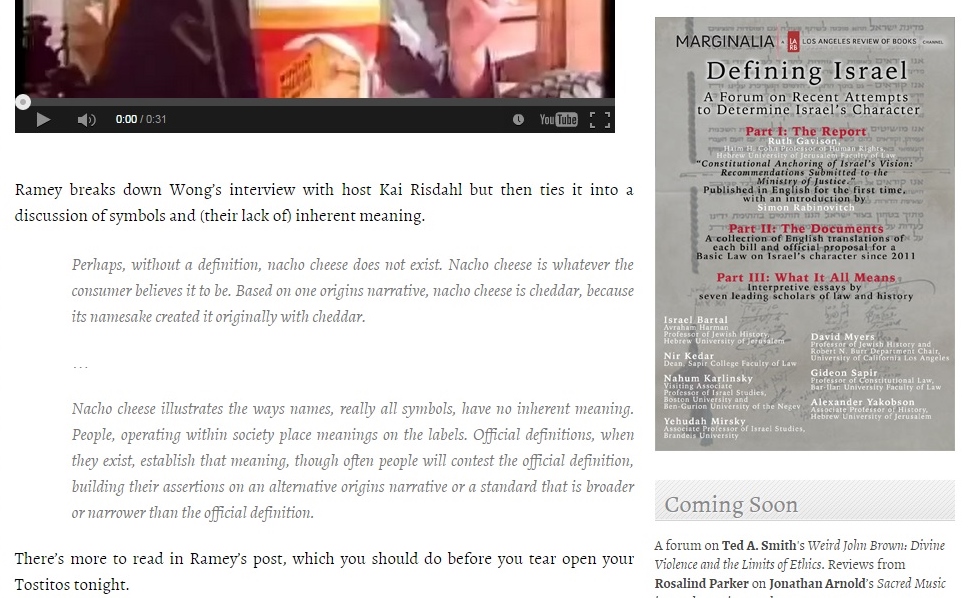
Perhaps you’ve heard the news that the Supreme Court has refused to hear a case regarding a lactating woman’s firing, at least tacitly upholding the lower court’s ruling that described her treatment as something “not sexist.” As you can read here, former Nationwide Insurance employee Angela Ames returned to her first day of work after maternity leave and found numerous practical and bureaucratic roadblocks that made it exceedingly difficult for her to express breast milk while at work. When she noted the obstacles and asked for other accommodations, a supervisor told to “just go home to her babies.” Ames reports that she was subsequently coerced the same day to pen her resignation letter. Continue reading “Context-Free Lactation”

 John Douglas, a former FBI agent, is now a well-known criminal profiler, and he was among the people involved in the effort to free three men who were convicted when they were teenagers, in Arkansas in the mid-1990s, of the brutal murder of three young boys. In the recent documentary on the case, “
John Douglas, a former FBI agent, is now a well-known criminal profiler, and he was among the people involved in the effort to free three men who were convicted when they were teenagers, in Arkansas in the mid-1990s, of the brutal murder of three young boys. In the recent documentary on the case, “ My colleagues have discussed on this blog the significance of labels many times, such as labeling something
My colleagues have discussed on this blog the significance of labels many times, such as labeling something  “Israel,” like “nacho cheese,” is a floating signifier subjected to ongoing recreation and contestation. In fact, the quotation from Steven’s post would be just as true if we swapped the terms:
“Israel,” like “nacho cheese,” is a floating signifier subjected to ongoing recreation and contestation. In fact, the quotation from Steven’s post would be just as true if we swapped the terms:  Being Super Bowl Sunday, it is time to think about that staple of Super Bowl parties, nacho cheese. Despite its ubiquity as a term in our society, no official definition exists, according to a
Being Super Bowl Sunday, it is time to think about that staple of Super Bowl parties, nacho cheese. Despite its ubiquity as a term in our society, no official definition exists, according to a